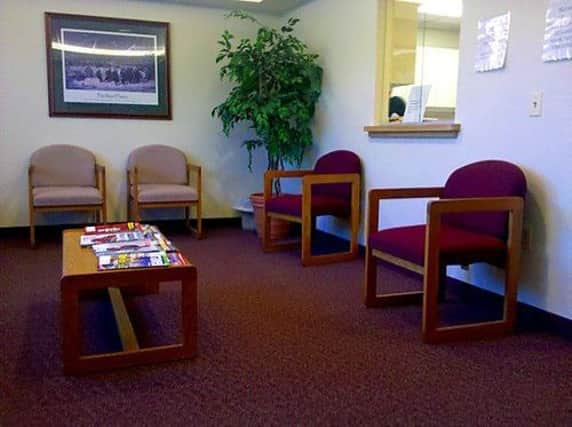Medical ‘passports’ to put patients with additional needs at ease


The measures include medical or learning disability ‘passports’ to ensure that patients are less likely to be distressed by the unfamiliar.
A senior nurse shared one young patient’s experience with colleagues at a meeting of health chiefs on Wednesday (July 3) and spoke about the wider benefits of the changes.
Advertisement
Hide AdAdvertisement
Hide AdAllison Cannon, chief nursing officer at Brighton and Hove Clinical Commissioning Group (CCG), told a governing body meeting that a little boy’s ‘passport’ recorded his urge to swivel three times in his doctor’s chair when he arrived for a consultation.
Once he had done this he was more settled and the consultation would run more smoothly.
She said that people with some learning disabilities and autism in particular could find visiting the doctor or nurse a challenging experience.
The CCG contacted families with children with a learning disability or special educational needs to find ways to improve visits to the doctor.
Advertisement
Hide AdAdvertisement
Hide AdAt its meeting at the Brighthelm Centre, the CCG governing body was told that the patient passport was the result.
It provided information about how young people liked to be dealt with in a medical environment.
Ms Cannon said: “For a child with a disability and an additional need, such as autism or learning disabilities, the commonplace situation of going to see a doctor can often be confusing and upsetting. They can become over-stimulated and frightened.
“This can cause significant distress to that young person and present a challenge to the people caring for them.”
Advertisement
Hide AdAdvertisement
Hide AdThe little boy who liked swivelling in his doctor’s chair struggled when he saw a different doctor or nurse, especially if he had to wait a long time.
He often became distressed and his mother sometimes had to take him home, resulting in a missed appointment.
Ms Cannon also said that it was unhelpful and upsetting to have to explain his traits and issues to a new GP or nurse on every visit.
After the passport was introduced, she said, everything changed for this family.
Advertisement
Hide AdAdvertisement
Hide AdThe boy had not missed any appointments since – and he generally saw the same doctor or nurse each time and had his moment swivelling in the chair.
Ms Cannon said: “It is really important we recognise disability and the needs of people every day.
“It is the small things that can sometimes make a significant difference to people.”